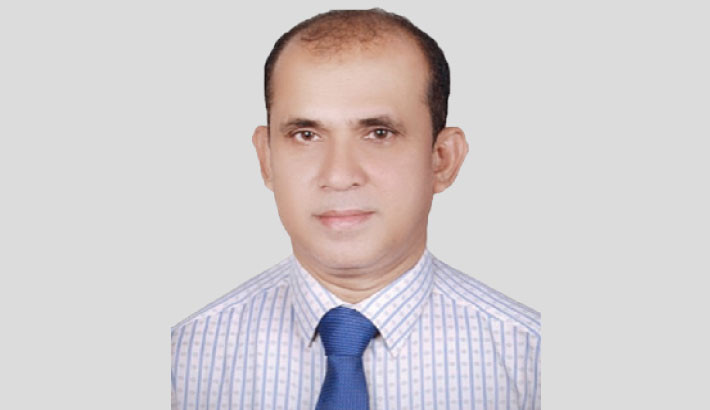Rethinking Economy: People, Profit and Fair Distribution
Farrukh Khosru
Published: 21 Oct 2025

The contemporary global crises share structural similarities rooted in the inadequacy of current economic paradigms. The dominant capitalist system, sustained by both ideological and institutional mechanisms, has failed to ensure distributive justice or equitable ownership. Although the macroeconomic conditions of nations may vary, the recurrent crises observable across the globe reveal the structural limitations of global capitalism. Political regimes — whether democratic, autocratic, monarchical, or hybrid — serve merely as different manifestations of a deeper economic contradiction. The global order, under the rubric of neoliberal capitalism, seeks to reclassify systemic crises as governance failures rather than structural deficiencies.
The collapse of the socialist bloc in the 1990s revealed that Marxist economic models were not immune to distortion through bureaucratic centralisation and misapplication of theory. In response, capitalism reinvented itself through financial liberalisation and globalisation. Yet unregulated markets tend to generate instability and inequality. To preserve itself, contemporary capitalism has often constructed ideological adversaries — most notably “Islamophobia” — while simultaneously appropriating Islamic economic concepts such as riba-free banking into profit-oriented frameworks (Sharia Banking Window). In many Muslim societies, so-called “Islamic banking” merely replicates interest-based systems under different contractual terms, reproducing existing patterns of wealth concentration.
Bangladesh, as a predominantly Muslim and postcolonial nation, faces the dual challenge of economic dependency and governance deficit. Structural transformation must, therefore, prioritise collective ownership and the fair distribution of surplus among all stakeholders — entrepreneurs, investors, labourers, and consumers. This transformation reflects principles articulated in the Medina Charter and the Prophet Muhammad’s (PBUH) Farewell Sermon, which collectively emphasise social responsibility and justice as integral to governance, suggesting that economic policy should prioritise ethical welfare alongside material prosperity.
Article 13 of the Constitution of Bangladesh recognises three forms of ownership i.e. individual ownership, state ownership and cooperative ownership. Each form, however, bears inherent limitations. Individual ownership, as under capitalism, encourages predatory accumulation; state ownership, as in socialism, risks authoritarianism and inefficiency; and cooperative ownership often fails to guarantee individuals’ active participation. Moreover, hybrid models — such as public–private partnerships — tend to entrench elite interests rather than democratise economic control.
Thus, there is a need to conceptualise social ownership, where all stakeholders participate in decision-making and profit-sharing, guided by ethical and democratic principles. Modern capitalist economic structures often exhibit a tendency to undervalue labour, as real wages may stagnate or decline in relation to inflation and currency depreciation. In such contexts, profit margins can become increasingly concentrated among financiers and entrepreneurs, resulting in reduced purchasing power and welfare for the working population.
To move towards a more democratic and equitable economic framework, the state could consider reclassifying basic needs — such as food, health, and education — as essential public goods rather than profit-oriented services. It may also promote forms of social ownership within production and service sectors to encourage broader stakeholder participation and equitable profit-sharing.
Furthermore, legacy business laws rooted in colonial structures (such as those inspired by the British East India Company Act) should be reviewed and updated to align with representative and participatory models of business management. Revisiting the monetary framework, including exploring asset-based standards such as gold, could help stabilise value and limit inflationary pressures.
To support inclusive financial access, the development of interest-free or ethically guided banking mechanisms could be encouraged, with profit margins indexed to real economic value. The state may further facilitate access to essential goods and services through publicly guaranteed, interest-free financing for basic needs, thereby advancing both economic stability and social welfare.
At both the macro and micro levels, a representative approach to management and profit distribution should be encouraged to promote equitable participation among stakeholders. Such framework envisions a balanced allocation of surplus value — such as 10 per cent for entrepreneurs, 40 per cent for investors or financial contributors, 20 per cent for human resources (including labour, expertise, and time), 10 per cent for consumers as participatory stakeholders, and 20 per cent for reserve funds and depreciation — collectively constituting a complete and sustainable distribution model. This distribution model aligns with both Islamic distributive ethics and present-day notions of effective demand, ensuring balanced income circulation within society.
The democratisation of economic structures is indispensable to the realisation of political democracy. Without the redistribution of ownership and power within production, the rhetoric of freedom remains hollow — echoing the unfulfilled socio-economic promises of Bangladesh’s independence.
To transform the post-2024 moment into a genuine socio-economic revolution, Bangladesh must move beyond piecemeal reforms and embrace a structurally democratic economy. Such an economy would embody both the moral imperatives of Islam and the egalitarian objectives of modern political economy, realising the long-deferred promise of economic justice.

